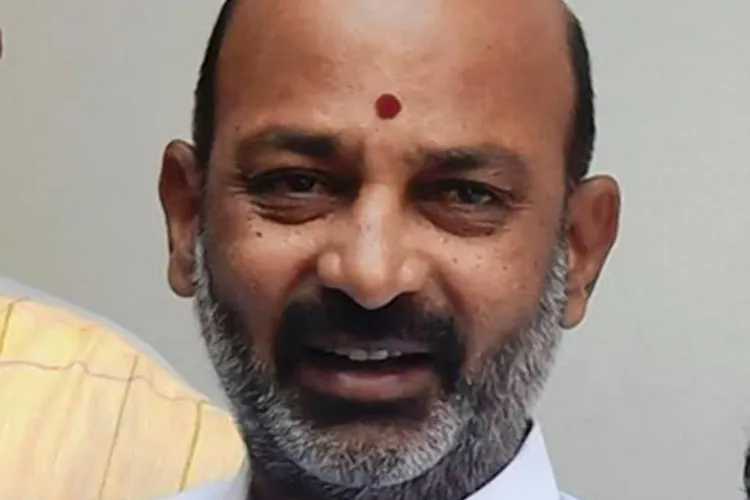
Chandigarh
Union Minister of State for Home Affairs Bandi Sanjay Kumar Saturday said that with the introduction of three new criminal laws, India is entering a new era of justice where scientific evidence and forensic expertise are pivotal to ensuring transparency, speed, and accuracy in investigations.
He was addressing the directors of central and state forensic science laboratories and other stakeholders at the valedictory session of the two-day meet here.
The minister said the Government of India is fully committed to establishing modern forensic laboratories in every district.
"Under the recently approved National Forensic Infrastructure Scheme (NAFIS), an amount of Rs 2,254.40 crore will be invested to build and upgrade forensic facilities, train personnel, enhance research, and develop indigenous technology to make India self-reliant in forensic science.
"We aim to ensure mandatory forensic investigation in all crimes involving punishment of more than seven years, and align the criminal justice system with technology-driven evidence collection and analysis," he said.
The two-day national meet concluded at the Central Forensic Science Laboratory (CFSL) here.
The national meet focused on aligning forensic services with the country's newly enacted criminal laws to build a justice system that is fast, transparent, and rooted in scientific evidence, said an official statement.
Organised under the theme 'Strengthening Forensic Science Services as per the New Criminal Laws', the event brought together the CFSL and state FSL directors, senior officials from the Ministry of Home Affairs and experts from law enforcement and academia.
The event was attended by the directors of CFSLs and state FSLs from across the country, as well as key officials from the Ministry of Home Affairs and law enforcement agencies.
The meet aimed to strengthen the forensic ecosystem to support the implementation of the new criminal laws - the Bharatiya Nyaya Sanhita, Bharatiya Nagarik Suraksha Sanhita, and Bharatiya Sakshya Adhiniyam.
The minister said the four pillars of this transformation will be infrastructure development, skilled human resources, technological upgradation (AI, machine learning, national data networks) and standardisation through SOPs and integration with systems like ICGS and CCTNS.
In his inaugural address, Dr SK Jain, director and chief forensic scientist, the Directorate of Forensic Science Services (DFSS), Ministry of Home Affairs, emphasised the transformative role of forensic science in the context of the new criminal codes.
Director, CFSL Chandigarh, Dr Sukhminder Kaur, emphasised the importance of collaboration and innovation, noting that forensic science is the backbone of modern criminal investigation.
ALSO READ: 10 trailblazers of Uttar Pradesh reshaping India’s future
Chandigarh has emerged as a national model in implementing the new criminal laws. On December 3, 2024, Prime Minister Narendra Modi dedicated the three new criminal laws to the nation from Chandigarh.
